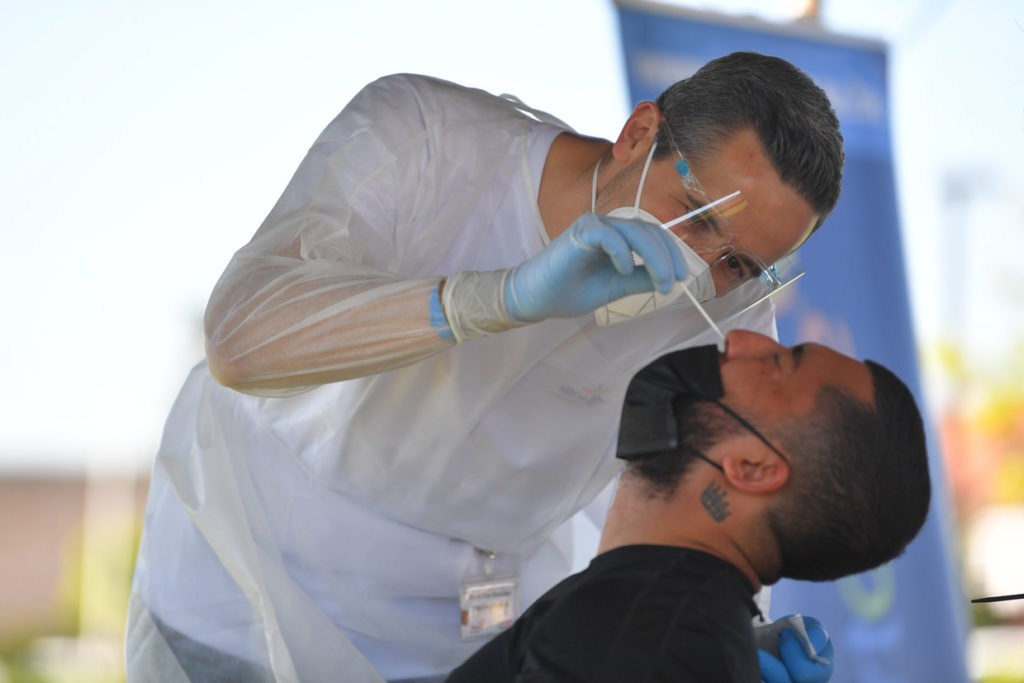Testing centres in Flanders have been dealing with aggression a lot more than usual in recent weeks due to the many tests that travellers sometimes have to undergo, according to the association of general practitioners Domus Medica.
More than 70% of the testing centres experience increased aggression by patients towards their staff due to the travel tests, according to a survey by Domus Medica among 56 Flemish testing centres, reports De Morgen.
"Aggression towards healthcare workers and test centre staff is unacceptable and we expect the Justice Department to deal with any form of aggression firmly," said Roel Van Giel, chairman of Domus Medica.
It mainly concerns verbal aggression towards the staff, both in the centres on-site and by telephone, but 16% of the centres also reported cases of physical aggression.
In 13% of centres, the police even had to intervene to calm things down.
The fact that many holiday destinations require a negative PCR test result, and Belgium also obliges those who are not fully vaccinated returning from a red zone to be tested again, is a cold shower for many, and most of the problems are due to insufficient preparation on the part of travellers, according to Domus Medica.
Related News
- Belgium's free PCR tests for travellers can also be taken by GPs
- 'This is not our job': GPs overwhelmed by demand for Covid-19 tests for travellers
- Half of France turns red, Italy almost fully orange on European travel map
People who have not yet been (fully) vaccinated are now entitled to two free PCR tests to travel, but travellers have to activate their code online before making an appointment at a test centre. More info can be found here.
However, the main reported reason for the aggression is that many travellers come to the centre without a code for such a free test, or show up without an appointment, expecting to be tested for free.
Other reasons, such as the code for a free test being expired, meaning that the traveller has to pay for it, are also reported. More frustrations among travellers are that the results sometimes do not arrive quickly enough (before departure), or an order to quarantine after a positive test result when the patient does not agree.
"We understand that many people are looking forward to a holiday and that everyone longs for a life without Covid-19," an employee told De Morgen. "However, we are not here to impede or make travel difficult, as many people claim, but rather to combat coronavirus."
Additionally, many travellers do not look up the information they need, but expect the testing centre staff to tell them what they need to know.
"They expect us to provide them with a travel test and comprehensive travel advice," one employee said. "We are still a test centre, not a travel agency!"
Domus Medica calls on travellers to be better prepared for a holiday abroad, as travelling this year is "unfortunately still different from what we are used to."
It is possible, and necessary, to consult the information on the info-coronavirus website, as well as the travel advice on the government Foreign Affairs website.
"Additionally, before departure travellers should request a code at www.mijngezondheid.be for a (free) test," he added. "By scheduling an appointment at a test centre in time, they do not have to worry about the waiting time for their test result."

